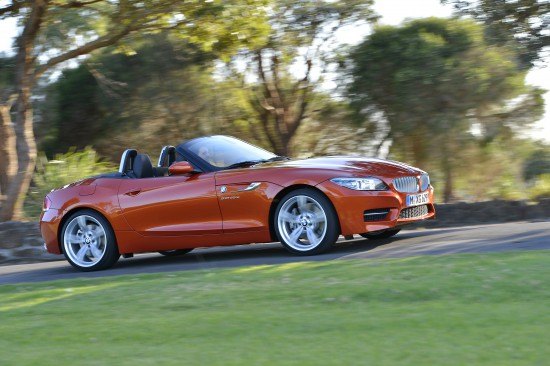Oh, So This Is Why BMW Thinks The Sports Car Market Isn't Going To Recover
It’s been five months since BMW’s sales boss, Ian Robertson, made news by questioning the long-term viability of the sports car. “The sports car market is roughly half of what it used to be. Post-2008, it just collapsed. I’m not so sure it’ll ever fully recover,” Robertson said.
BMW, of course, is the maker of the Z4, a car which generates only one-tenth the volume now that it did when launched as a successor to the Z3. In other words, it’s not much wonder BMW wonders whether outright sports cars have a future.
Just how bad has the Z4’s situation become? Only 802 were sold in the first-quarter of 2015, down 6% compared with the same period one year ago. The Z4 accounted for just 1% of BMW brand volume over the last three months; just 1.5% of BMW passenger car sales. Naturally, roadsters aren’t typically major contributors to an automaker’s volume, but the Z4 was at one time. During a five-year span from 2003 onward, the Z4 was responsible for 5% of the brand’s U.S. sales.
It’s not as though BMW hasn’t significantly altered the Z4 to make it more appealing to a broader cross-section of the buying public. Previously a softtop convertible or a hardtop model, the Z4 has used a retractable hardtop since the 2009 relaunch.
Sales hardly perked up, however, and have only declined since. Only 2010’s marginal 7% increase and 2006’s 22% jump interrupted a streak that saw Z4 sales decline in nine of the last eleven years.
All of this brings us to the month of March 2015, the first time in a year that Z4 volume climbed beyond 300 units. Yet on a year-over-year basis, even March’s 422 sales revealed a 29% decline. Z4 volume has decreased in nine of the last 14 months; Z4 volume has increased only eight times in the last two years.
Yet while reports of sports car death seem to make a special amount of sense when BMW’s delivering the reports, it’s not as though Z4 rivals are contradicting Robertson’s theme.
The Audi TT’s U.S. volume has declined in nine of the last twelve years.
Mercedes-Benz SLK sales in America decreased in six of the last nine years.
Porsche Boxster sales in 2014 fell 15% in 2014 after rising to an eight-year high in 2013, but 2014 volume for the Boxster and Cayman, combined, was down 26% compared to the Boxster’s total from 2002.
The Nissan Z’s 2014 U.S. sales tally was less than one-fifth the total achieved in 2003.
One key exception: although the Chevrolet Corvette’s average U.S. annual volume dwindled to 14,230 units between 2009 and 2013, GM sold more than 34,000 Corvettes in 2014, the best year since 2006.
Since the quote from Ian Robertson was given in November, U.S. Z4 volume has fallen 5%.
Timothy Cain is the founder of GoodCarBadCar.net, which obsesses over the free and frequent publication of U.S. and Canadian auto sales figures.
More by Timothy Cain
Latest Car Reviews
Read moreLatest Product Reviews
Read moreRecent Comments
- ToolGuy I might be Batman.
- Lou_BC Well, I'd be impressed if this was in a ZR2. LOL
- Lou_BC This is my shocked face 😲 Hope formatting doesn't fook this up LOL
- Lou_BC Junior? Would that be a Beta Romeo?
- Lou_BC Gotta fix that formatting problem. What a pile of bullsh!t. Are longer posts costing TTAC money? FOOK



































Comments
Join the conversation
In 2008, baby boomers were starting to retire en masse. I have only two anecdotal data points, but I have doubts that they are isolated experiences. 1. My boss; his youngest finally went off to college. He and his wife sold their sprawling house with multiple car garage and moved to a high-rise condo downtown with just a single parking space. 2. My parents; dad wants to downsize into something small and easy to take care of so they can spend all their time traveling. Mom wants a yard and basement, but dad is the one who has to take care of it all. If dad wins, the three cars they currently own will be reduced to one. If mom wins, dad will be spending too much time taking care of a yard and house to go driving anywhere.
Sports cars are dying out because there is no place to drive them anywhere near their limit except the track. The highway system is essentially the same as it was 40 years ago. My Porsche 996 supposedly top ends at almost 170 mph, but I can't even think of a handy place to try that.